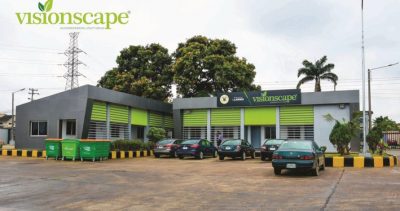What Visionscape’s bond default means for Lagos
…as firm misses coupon payment of N4.5bn…States’ borrowing costs set to rise
Visionscape’s bond payment default has some consequences for its guarantor, the Lagos State government, and companies without a strong financial history seeking to raise debt capital will not be spared.
Lagos may not be the primary obligor for Visionscape Sanitation Solution’s bond, but it guaranteed investors who lent money to the waste management company employed by outgoing Governor Akinwunmi Ambode to rid Nigeria’s economic hub of festering waste dumps that marred its street corners, that it would step in to bear the cost in the event of a default, drawing from its Internally Generated Revenue (IGR).
To this end, an Irrevocable Standing Payment Order (ISPO) was issued by the State Executive Council March 2017. It provided that Lagos State would dip hands into its IGR to settle investors if Visionscape reneged on its debt obligations.
It meant the Lagos State government was agreeing to be on the hook for the bond programme the Visionscape Group, through its Special Purpose Vehicle (SPV), was set to issue.
With the backing of Lagos State, Visionscape sold the first tranche of its proposed bond issuance, a N27 billion, 17.5 percent, fixed rate 5-year bond due 2022, to high net worth individuals.
Investors lapped up the bond which had been rated A+ by credit ratings agency Agusto & co and Global Credit Rating agency, largely on the back of the Lagos State guarantee.
Agusto estimated that the duly executed ISPO on Lagos State’s revenue account constitutes sufficient security for the issue as the remittances…will be adequate to cover the cumulative obligations (coupon payments and principal repayments) of the Series 1 Note 1.03 times.
Enter 2019 and the plot has gone terribly wrong.
That’s after Visionscape defaulted on an initial coupon payment of N4.5 billion due March 5. The Lagos State government has distanced itself from the bond, causing investors to panic.
An official of Lagos State and member of Governor Ambode’s cabinet told BusinessDay that the state government has no obligation whatsoever to bond holders in respect of Visionscape because it never issued the bond.
“We never issued the bond, Visionscape did, so we don’t have an obligation to the bond holders,” the source said on condition of anonymity.
According to the official, what the state signed with Visionscape was a contract to pay the municipal waste managing company an agreed amount for lifting up to 12,000 tonnes of waste per month.
“Agreed that the political situation in the state among other issues worked against that contract, in the last seven months, Visionscape has not lifted waste to warrantee that payment,” the source said.
He, however, said talks were ongoing to resolve the issue with Visionscape.
“We expect Visionscape to resolve theirs with its bond holders. There’s what they call political risk in business and I think Visionscape must have factored that in,” the official said.
Other sources familiar with the matter say Lagos State has gone cold on its contract with Visionscape following the unexpected exit of Governor Ambode, who lost his bid for a second term in office to fellow party member, Babajide Sanwo-Olu, at the primaries in October 2018.
Soon after Ambode’s loss, Simon Reading, chairman, Board of Investors of Visionscape, announced plans to shut down the company’s operations.
He said the decision was reached following “heightening political tension in the state” and reported cases of attack on its employees, destruction of its operational vehicles and equipment.
“Of utmost concern are the recent developments surrounding the turbulent political environment wherein it was reported that the opposition in the upcoming gubernatorial race used subversive language about the residential collections contract and called it ‘a misadventure’,” Reading said.
“After Visionscape suspended its operations, Lagos State lawmakers made it illegal for any payment to be made to the waste company,” a source with knowledge of the matter said.
“The implication of this is that going forward, any ISPO against IGR is worthless,” said the source who spoke anonymously.
The brewing impasse threatens to jack up borrowing costs for Lagos State when it goes seeking to refinance an N80 billion bond this year. It also sends a signal that contract enforcement in Lagos is fickle and unpredictable.
Because the state government sets the tone for borrowing costs in Lagos, it means companies seeking to raise debt capital would also be incurring higher borrowing costs. States seeking to raise debt capital would also face a similar challenge.
Visionscape was handed residential waste disposal, a turf that was prior to this run by Private Sector Participants (PSPs), by Governor Ambode. Critics say Visionscape did a sub-par job in handling waste disposal in Lagos and that it fell short of the standard set by the previous operators.
Visionscape’s management responded by saying that after necessary infrastructure was in place, their services would improve. The Lagos State-backed bond was supposed to deliver that infrastructure.
In the information memorandum of the bond programme, the waste management company projected that about N16.3 billion of the proceeds would be used to acquire fleet for the transfer loading stations, strategic acquisitions and related infrastructure, expected by September 30, 2017.
Containers and operational equipment were to cost N3.13 billion. Waste facilities upgrade was estimated to take up N2.58 billion, while working capital would gulp N2.5 billion. (Business Insider)


